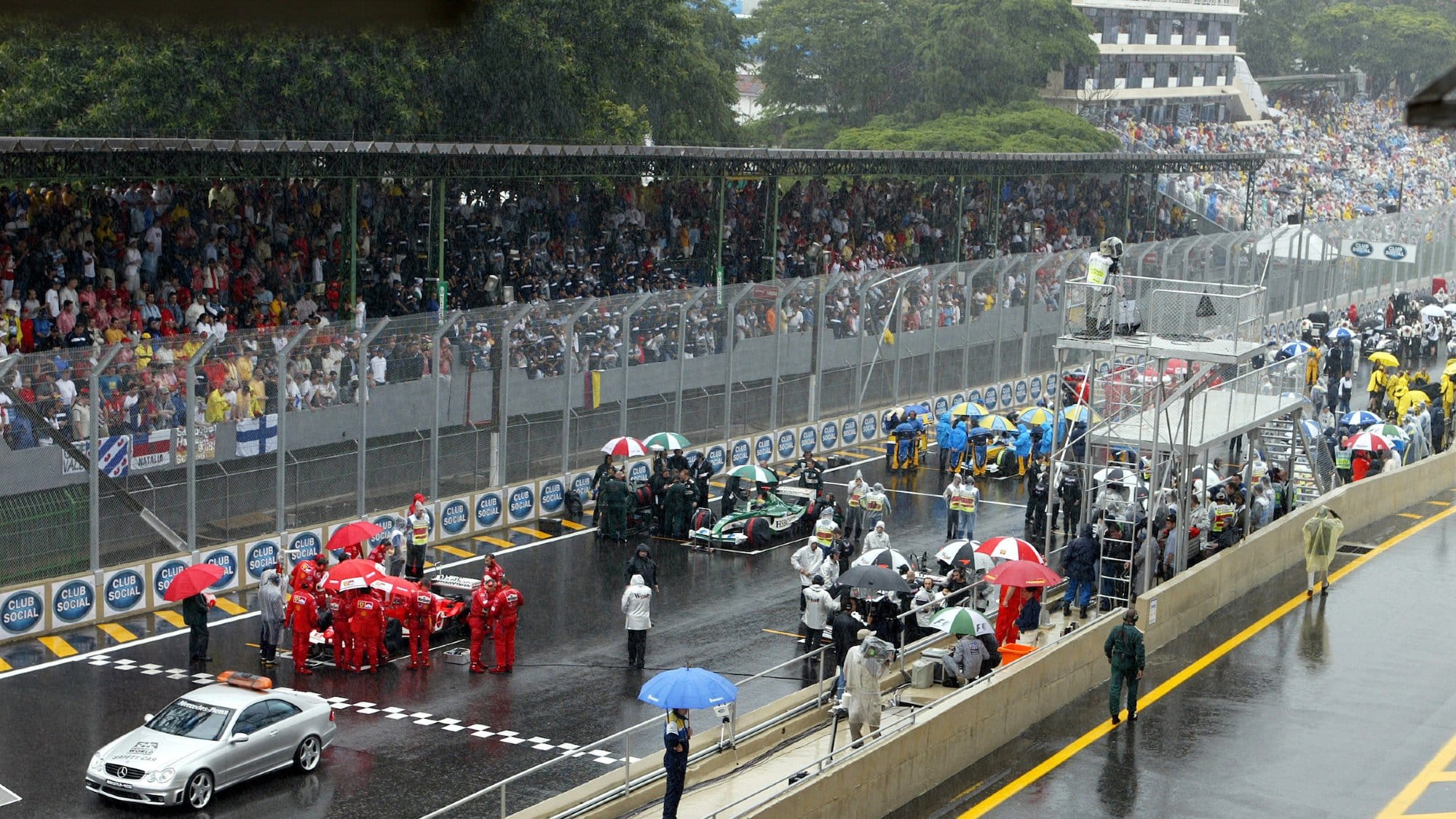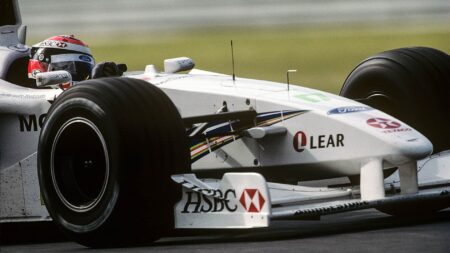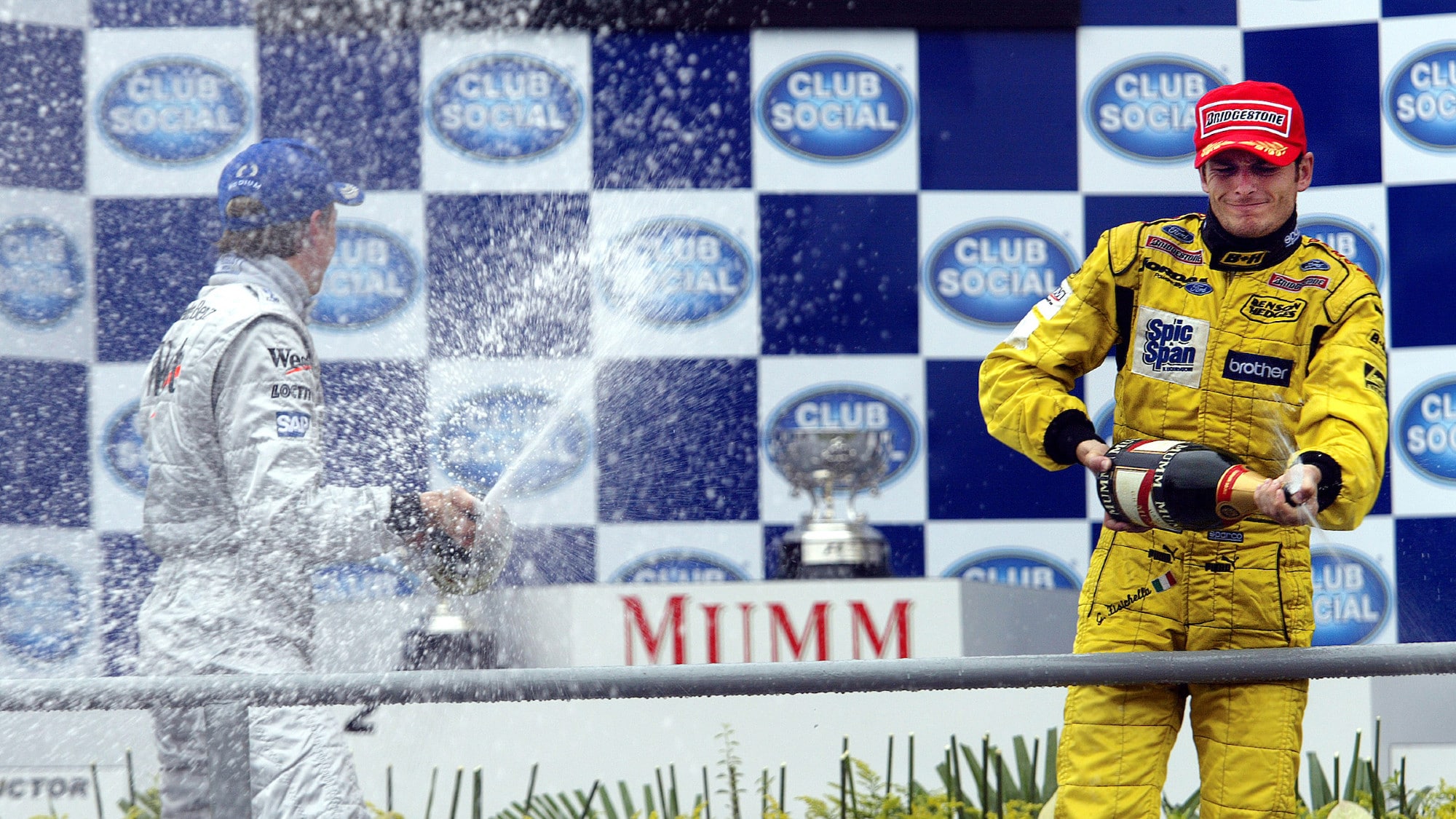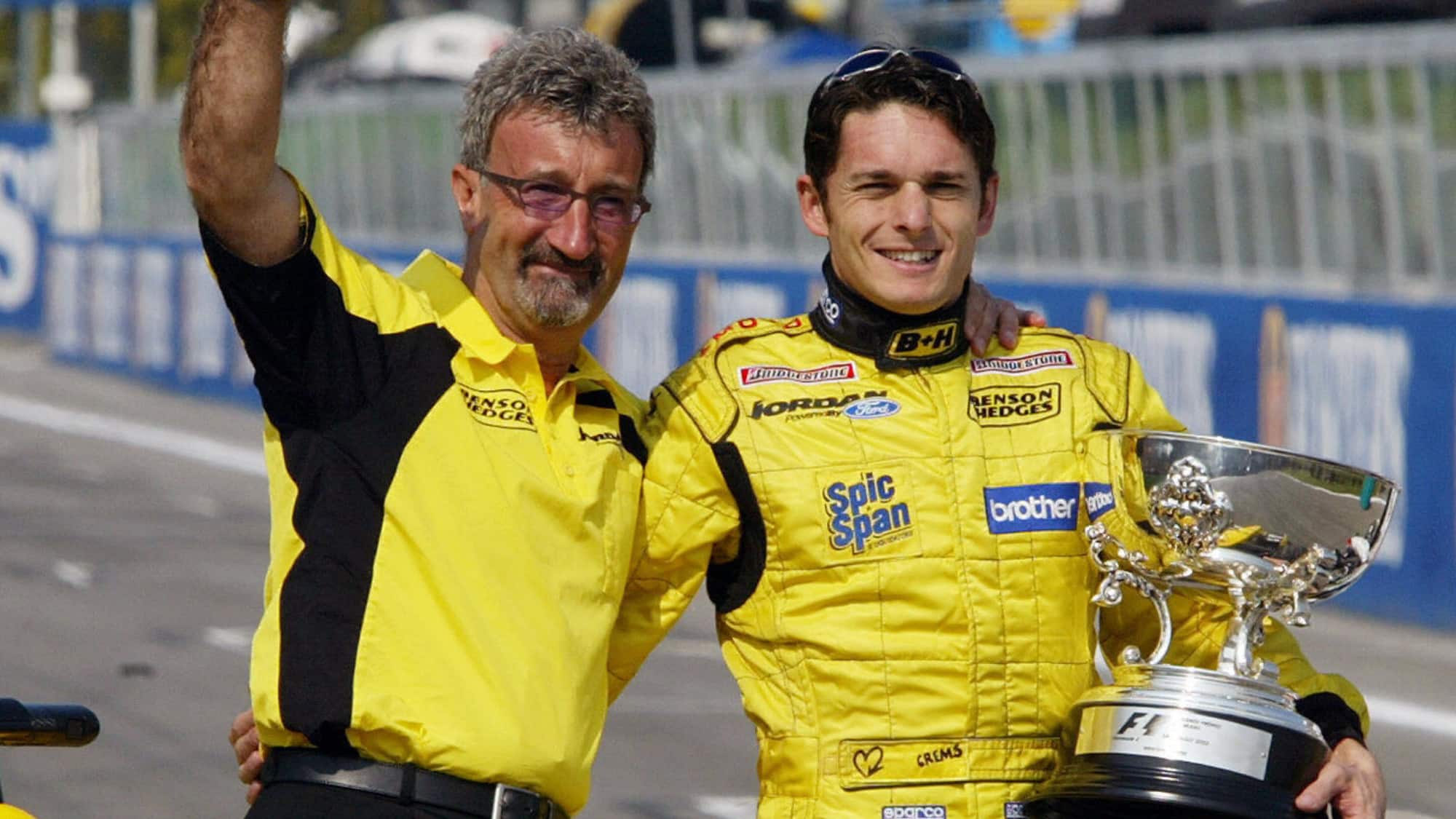Smedley was resolute, gave the call, and Fisichella duly obliged by pulling in for tyres and fuel. The race started a lap later, with the cars driving through a harrowing wall of spray into T1. Somehow, no-one went off on this first lap of free-running.
Fisichella was at the back of the pack in 19th, only saved from being last by the buffer of his team-mate Firman.
Minardi’s Justin Wilson became the first victim of one of many rivulets that were running across the track. The biggest danger area was at the third corner, Curva Do Sol.
Heading down the straight into the start of lap 17, Ralph Firman’s right-front suspension failed. The Irishman’s out of control Jordan hurtled towards Turn One, narrowly missing Fisichella before collecting the unfortunate Toyota of Olivier Panis.
The safety car came out once more and many drivers elected to pit. Fisichella was the beneficiary as both Jacques Villeneuve and Jarno Trulli emerged from their stops behind him.
Renault accidentally sent Alonso out on slicks, the resulting pitstop to rectify this lifting Fisichella another place.
The lap 23 restart was accident-free once more, but this was soon to change. Jordan’s strategy continued to work as Fisichella kept pushing his way up and others pitted. The very next lap, one of F1’s most famous car parks began its inauguration. The plentiful stream running across Turn Three caught out Montoya, who spun straight off into the barriers.
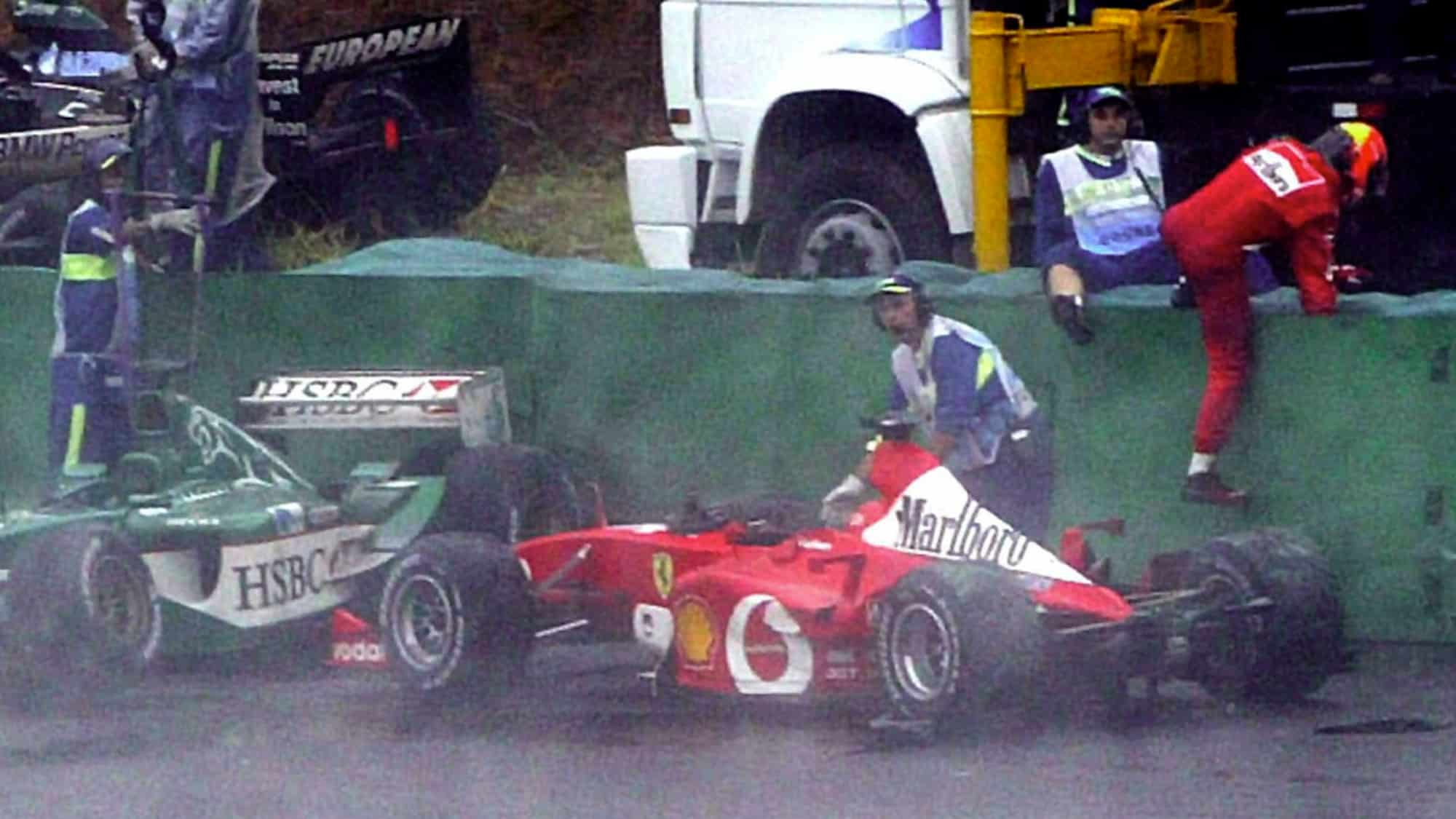
Michael Schumacher joins the unfortunate few in the barriers at Turn 3
Alexander Hassenstein/Bongarts/Getty Images
He didn’t even have time to get out of the car before Jaguar’s Antonio Pizzonia joined him at almost exactly the same spot.
Michael Schumacher – proving no-one was infallible – was the next to go off at the same place two laps later, pirouetting elegantly before crunching into the barriers. The safety car was brought out once more.
Further pitstops for competitors lifted the sole remaining Jordan to eighth – the first points paying position. In 17 frantic laps, Fisichella had fought back to where he originally was when he made his pitstop. Now the hard work could really begin.
The race got underway again on lap 29, and it took only one lap and a few corners for Minardi’s Jos Verstappen to be the next to spin out at T3.
Fisichella had just been overtaken by the resurgent Kimi Räikkönen, who had pitted on lap 27, so he moved back into eighth. From here on in, the Italian and the Finn’s races would be intertwined as they moved in parallel up the field.
Jenson Button followed Verstappen into the Turn Three barriers two laps later. He became the corner’s sixth victim and the fourth safety car of the day was brought out.
The Italian was now up to sixth, executing the plan to perfection thus far. Smedley was full of praise when recalling Fisichella’s efforts that day.
“He did a massive job, I have to say it’s one of the best races that he’s ever done. To keep it on the track, to keep concentrated. He was always on the limit of the performance of the tyre. If it was raining harder, he would slow down but he would slow down less than other people – you can see watching the telemetry we used to get.
“He was always on the limit and to do that on one set of tyres for that long and to keep that level of concentration when you’ve got, you know, all these world champions going off around him…”
Both the intermediate and wet tyres were wearing at a rapid rate on the drying track, suggesting a move to slicks. However, there was no way any driver could negotiate the river flowing across T3 without grooved tyres.
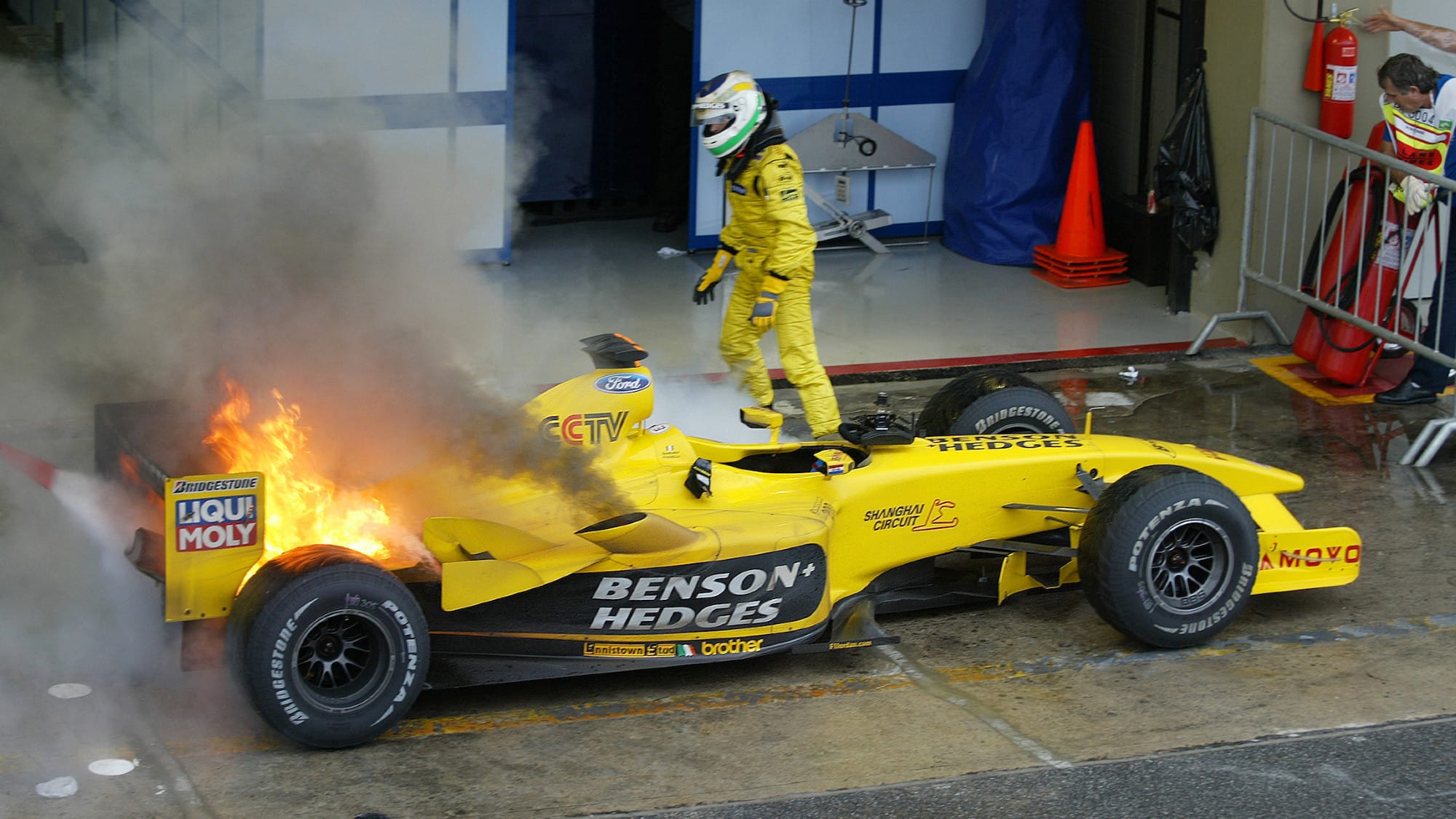
Fisichella’s Jordan catches fire in the pit lane after the red flag
Grand Prix Photo
A drive-through penalty for Alonso passing under yellows lifted Fisichella up to fifth on lap 42. The stakes were getting higher, the rewards greater. Could Jordan’s man keep it on the road?
Come lap 46 and Fisichella’s fellow Bridgestone runner Rubens Barrichello was leading. Between them were the three Michelin-shod cars of David Coulthard, Räikkönen and Ralf Schumacher – Fisichella was faster than all of them. One lap later and things got even better.
Ferrari had miscalculated the amount of fuel it had put into Barrichello’s car. Quite simply, it wasn’t enough, and the local hero ground to a sickening stop halfway round lap 47.

